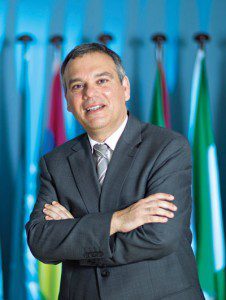Last year when the US President Barack Obama used his State of the Union’s address to argue that the present generation should be concerned with the patrimony future generations will inherit, observers knew that he was instilling urgency into the climate change debate.
Changes to climate, while being a natural phenomenon, are exacerbated through anthropogenic activities and are bringing about serious environmental consequences affecting human life. Indeed this concern was recognised way back in 1988 by Prof. David Attard, Judge of the International Tribunal for the Law who, through a letter to the editor published in the London Times in August of that year, proposed ‘a comprehensive global strategy to protect the weather and climate as part of an effort to ensure that our planet remains fit to sustain human life’.
In this regard the first 1990 Intergovernmental Panel on Climate Change Assessment Report anticipated that, inter alia, the most vulnerable populations are those within developing countries, particularly the lower-income groups: residents of coastal lowlands and islands such as those in Bangladesh, China and Egypt, as well as entire small nations, where inundation due to sea-level rise and storm surges could lead to significant movements of people.
In the light of this change, it is opportune to examine whether certain fundamental principles in international law are flexible enough to take on the significant challenges brought about by climate change.

This is the purpose of a Ph.D. research currently being carried out by Dr Antoine Grima, assistant lecturer at the Environmental and Resources Law Department within the Faculty of Laws of the University of Malta. Dr Grima believes that in many respects the consequences brought about by changes in the sea level will bring on new challenges to international law in general and to United Nations Convention on the Law of the Sea (UNCLOS) in particular.
‘I believe’ explains Dr Grima, ‘that it is appropriate to examine UNCLOS in the light of this development and assess the extent of its ability in addressing new concerns. The research will answer many questions. Will the continued application of the principles established by UNCLOS clarify and maintain stability or will they plausibly bring about unwarranted chaos and confusion? Will peace and stability brought about by UNCLOS III withstand
the challenges brought about by climate changes?
This Ph.D. scholarship is being funded by a generous anonymous donor through the RIDT, the Research Trust of the University of Malta.





Comments are closed for this article!